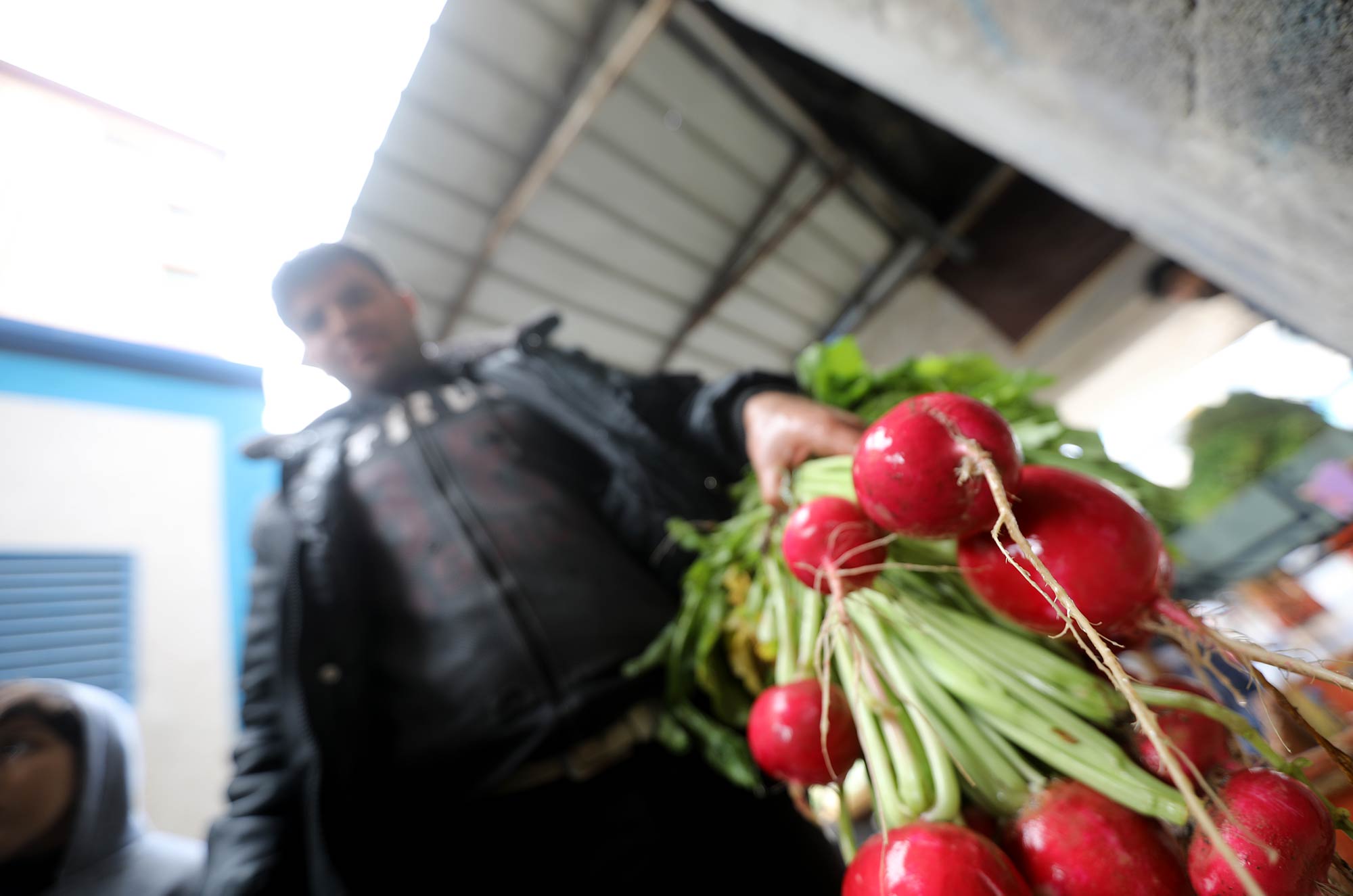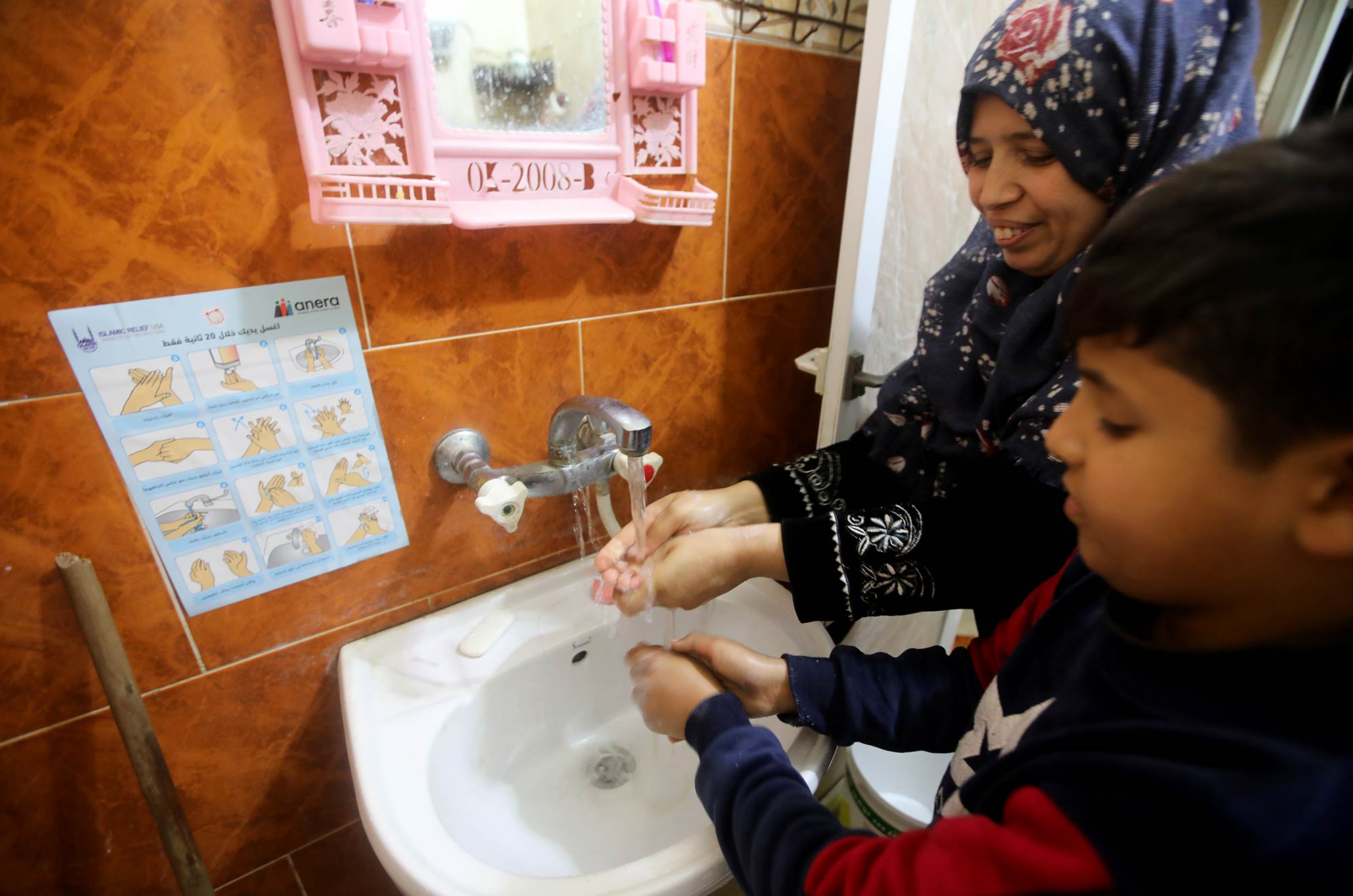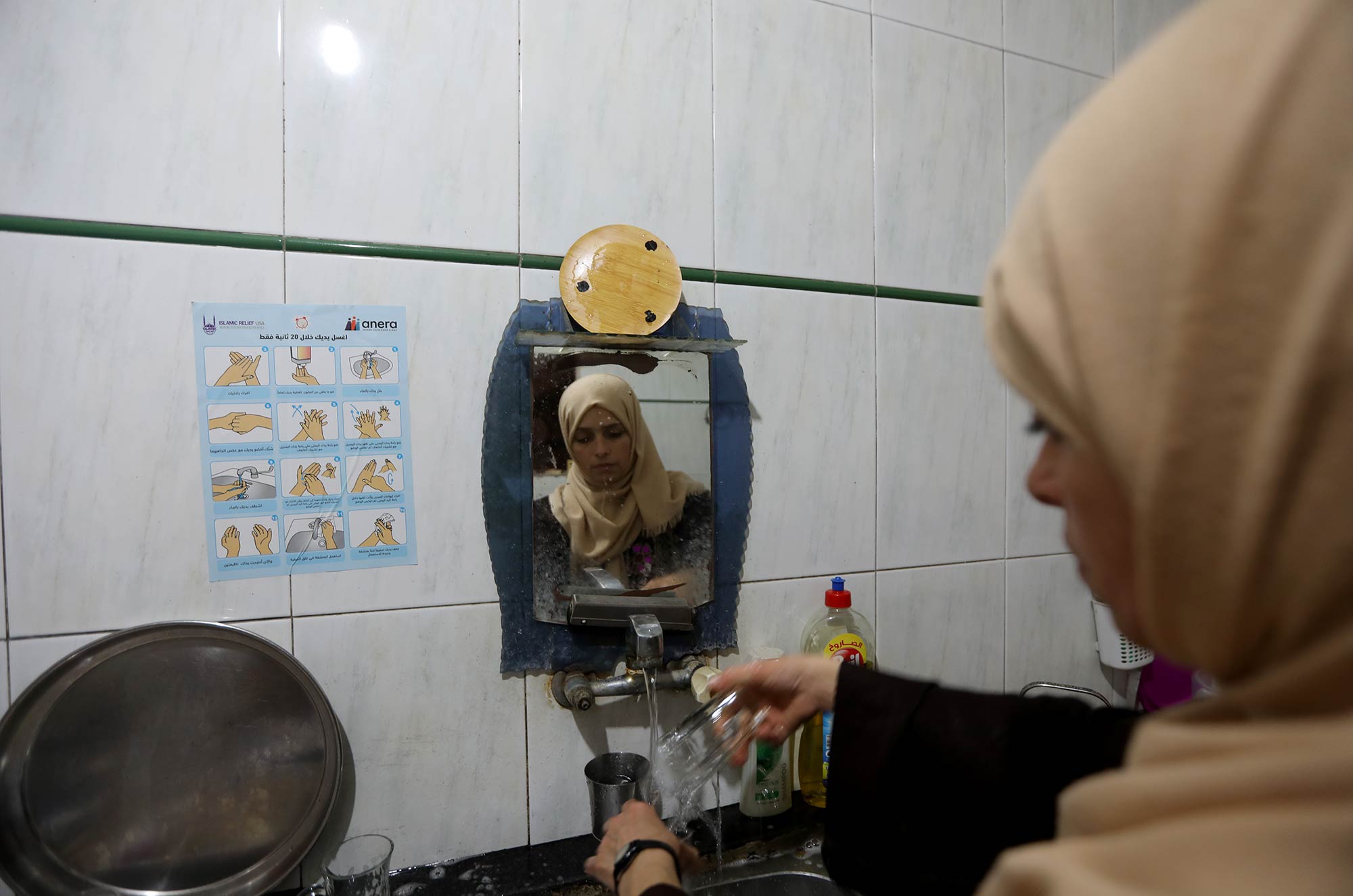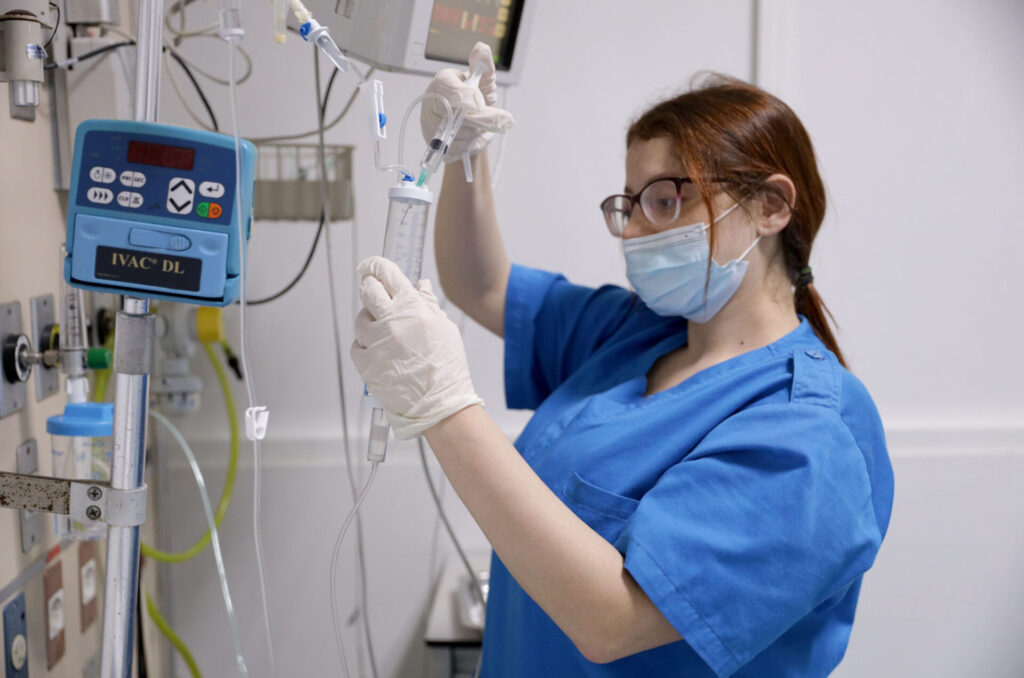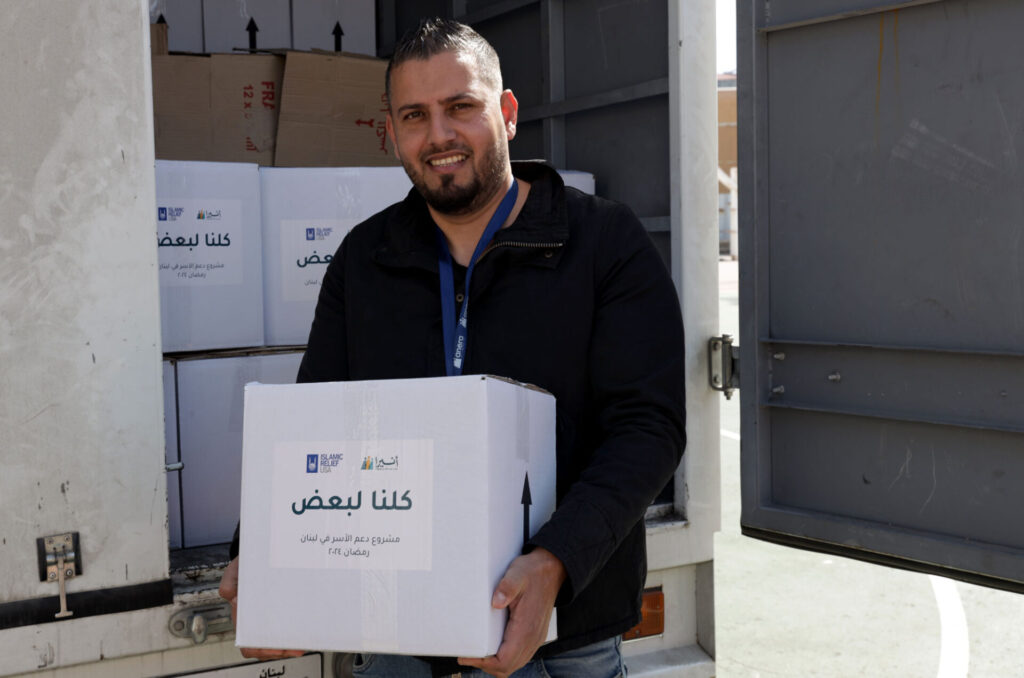WATER
Well brings reliable water supply to crowded Gaza refugee camp
Jan, 2020
A new water pump for this refugee camp in Gaza operates 24 hours per day and more than triples water output.
Clean water for refugees
The Jabalia Palestinian Refugee Camp market teems with vegetable merchants and shoppers. Megaphones crackle as traders call customers to their lustrous produce.
Arafat runs a fruit stand here, next to the local water pump station. He is happy that his stall is only a few feet from the new, Anera-built water well. He can wash his radishes there.
Residents of this neighborhood struggled for years to get access to potable water. With support from IRUSA, Anera has helped them do that.
The Abu Talal water well in Jabalia began pumping in 1970 as the main water access point in the refugee camp. Located in the center of town of Jabalia, the pump serves the refugee camp and an UNRWA health center. It supplies water to 20,000 people.
The old well pump was below ground level. In the winter, heavy rains flooded the pump station equipment and caused water contamination. So the pump would have to shut down until the water receded. Before Anera renovated the well it was only operating 12-18 hours per day.
The well structure itself was in such disrepair it was on the verge of collapse. There were minor repairs over the years, but the fixes did not remedy these serious problems. Anera repaired the existing pump and brought the structure up to ground level, alleviating the risk of flooding in the future. We also installed a chlorination system and a new central electrical power grid.
The new water pump is now operational 24 hours per day, even during flooding events. It also more than triples water output and requires less fuel.
Down the road from the water pump and along some narrow paths we find Marriam. She has lived her whole life in this neighborhood. “Our water is polluted,” she says. “I’ve lived here for a very long time and water has always been an issue.”
The mother of eight talked about the difficulties of having water shortages.


“I use water for cooking and making tea. It used to be filthy and, even then, I only got it once a week.”
Her daughter, Iman, attended one of Anera’s hygiene workshops for the community. She now helps her nephews and nieces wash their hands using the techniques she learned in the workshop.
“Infections are contagious. We used to see many illnesses from dirty water. So I shared [what I learned in the workshop] with all my sisters and neighbors,” Iman says.
Anera’s awareness sessions educate people about the dangers of contaminated water. Families learn that they need to boil water that comes from rooftop tanks, as they are rarely cleaned. They also learn about the importance of hand-washing and cleaning produce.
“We learned a lot of good information [in Anera’s awareness sessions],” says Fadawa, another Jabalia mother.


“Simple practices like washing your hands and cleaning water tanks make a difference. I’ve lived in Jabalia for 30 years. We’ve suffered here. In the old days we used to have to spend money on filling [rooftop] water tanks. Now, with the well fixed, we can rely on that water supply."
“Water is our life,” Fadawa says, expressing a sentiment of so many people in Gaza familiar with water-scarcity.
With the new water well, Fadawa and her family no longer have to buy water. The savings have gone to building a kiosk that her son takes to the beach, stocked with assorted items for sale.
The views expressed herein are those of Anera and shall not, in any way whatsoever, be construed to reflect the official opinion of IRUSA, its Islamic Relief affiliates, or its donors.

